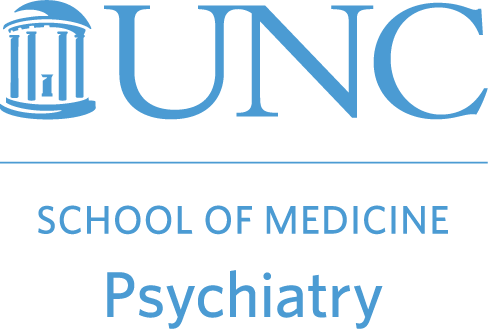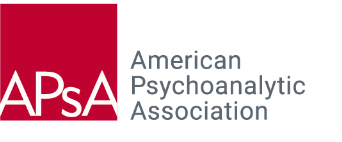The Body Keeps the Score: Trauma, Attachment, and Neuroscience
Dr. Bessel van der Kolk
November 15, 2025
Witherspoon Student Center | NC State University
Raleigh, NC
*Due to overwhelming demand, the morning public lecture is now available via Zoom.*
The Impact of Trauma Across the Lifespan
Virtual Only; In-Person Seating is Sold Out for the Entire Day
*Open to general public, health and mental health professionals.
Dr. Bessel van der Kolk’s presentation will offer an integrative exploration of psychological trauma, drawing on his pioneering research and clinical experience. In dialogue with psychoanalytic approaches, Dr. van der Kolk will present his broad perspective on trauma’s impact on the brain, body, and relationships, highlighting both traditional and innovative treatments. The session will address the limitations of purely verbal therapies and introduce the audience to body-based, neurobiological, and experiential modalities—including neurofeedback and psychedelic-assisted therapy. Attendees will gain insight into how trauma shapes self-regulation, attachment, and narrative, and will learn about emerging interventions that foster healing by engaging both mind and body.
Morning Lecture Only: $75 general admission ($60 PCC member; Grad Student/Resident with
student ID)
CME Credits: 2 / CE Credits: 2 / NBCC: 2 clock hours / All Others: Letter of Attendance
Kindly read the section on Continuing Education below for full details.
Psychotherapy for Developmental Trauma: An Open Conversation with Bessel van der Kolk
Due to the clinical nature of the afternoon session, it will not be livestramed and is only available to those currently registered.
*Open to mental health and healthcare professionals only.
Survivors of developmental trauma represent a large and challenging group of patients seeking psychotherapy. Experiences that adversely affect the developing mind and body come in many forms—including physical and sexual abuse, neglect, oppression, and intergenerational transmission of trauma, along with more subtle forms of relational or attachment trauma. Bessel van der Kolk argues that effective treatment for developmental trauma must include both psychological (top-down) and somatic (bottom-up) approaches. Brief vignettes will illustrate clinical presentations of developmental trauma, setting the stage for thoughtful discussion of how we may integrate psychodynamic and somatic perspectives. This presentation is designed to stimulate cross-disciplinary dialogue and expand clinicians’ therapeutic repertoire in working with trauma.
Combined Morning and Afternoon Programs: $150 ($100 PCC Member; Grad Student/Resident with student ID)
CME Credits: 4 / CE Credits: 4 / NBCC: 4 Clock Hours / All Others: Letters of Attendance
Kindly read the section below on Continuing Education for full details.
*Please note: The full-day event features both the Morning and Afternoon Programs for a comprehensive experience. The Afternoon Program cannot be purchased separately.
Lunch Break During the 90-minute break between the morning and afternoon programs, lunch is on your own. Plan to meet up with colleagues and walk a few blocks to eat at one of the many restaurants along Hillsborough Street or at the Talley Student Union at 2610 Cates Avenue.
Bessel van der Kolk, MD is a clinician, researcher, and teacher in the field of post-traumatic stress. His work integrates developmental, neurobiological, psychodynamic, and interpersonal aspects of the impact of trauma and its treatment. Dr. van der Kolk and his various collaborators have published extensively on the impact of trauma on development, such as dissociative problems, borderline personality and self-mutilation, cognitive development, memory, and the psychobiology of trauma. He has published over 150 peer-reviewed scientific articles on such diverse topics as neuroimaging, self-injury, memory, neurofeedback, developmental trauma, yoga, theater, and Eye Movement Desensitization and Reprocessing (EMDR).
Dr. van der Kolk is President of the Trauma Research Foundation, which promotes clinical, scientific, and educational projects. His 2014 #1 New York Times best seller, The Body Keeps the Score: Brain, Mind, and Body in the Treatment of Trauma, transforms our understanding of traumatic stress, revealing how it literally rearranges the brain’s wiring – specifically areas dedicated to pleasure, engagement, control, and trust. He shows how these areas can be reactivated through innovative treatments, including neurofeedback, somatically-based therapies, EMDR, psychodrama, play, yoga, and other therapies.
*Attention Guests: Registration begins at 9:15 am. Please arrive early to find free parking and enjoy a short walk to the venue.
Use your GPS to locate the Witherspoon Student Center, in the heart of the NC State University Campus. Use the printable map below to locate nearby parking—in the large Dan Allen Parking Deck and in smaller lots—highlighted in pink and green.
Venue:
Witherspoon Student Center
NC State University
2810 Cates Avenue
Raleigh, NC
Online Map of NC State University Campus
Printable Map of Parking Areas
After attending this program, participants will be able to:
- Examine and explain how traumatized people process information
- Explain how trauma affects the developing mind and brain
- Identify the difference between disrupted attachment and traumatic stress
- Describe how adverse childhood experiences affect brain development, emotion regulation, and cognition
van der Kolk, B. (2014). The Body Keeps the Score: Brain, Mind, and Body in the Healing of Trauma. Viking Penguin.
van der Kolk, B., Ford, J. D., & Spinazzola, J. (2019). Comorbidity of developmental trauma disorder (DTD) and post-traumatic stress disorder: Findings from the DTD field trial. European Journal of Psychotraumatology, 10(1), 1562841. https://doi.org/10.1080/20008198.2018.1562841
Harricharan, S., McKinnon, M. C., Tursich, M., Densmore, M., Frewen, P., Théberge, J., van der Kolk, B. A., & Lanius, R. A. (2019). Overlapping frontoparietal networks in response to oculomotion and traumatic autobiographical memory retrieval: Implications for eye movement desensitization and reprocessing. European Journal of Psychotraumatology, 10(1), 1586265. https://doi.org/10.1080/20008198.2019.1586265
van der Kolk, B. A., Wang, J. B., Yehuda, R., Bedrosian, L., Coker, A. R., Harrison, C., Mithoefer, M., Yazar-Klosinki, B. Emerson, A. & Doblin, R. (2024). Effects of MDMA-assisted therapy for PTSD on self-experience. PLOS ONE, 19(1), e0295926. https://doi.org/10.1371/journal.pone.0295926
Rogel, A., Loomis, A. M., Hamlin, E., Hodgdon, H., Spinazzola, J., & van der Kolk, B. (2020). The impact of neurofeedback training on children with developmental trauma: A randomized controlled study. Psychological Trauma: Theory, Research, Practice, and Policy, 12(8), 918–927. https://doi.org/10.1037/tra0000607
The Psychoanalytic Center of the Carolinas has been approved by NBCC as an Approved Continuing Education Provider, ACEP No. 6518. Programs that do not qualify for NBCC credit are clearly identified. The Psychoanalytic Center of the Carolinas is solely responsible for all aspects of the program.
The Psychoanalytic Center of the Carolinas is approved by the American Psychological Association to sponsor continuing education for psychologists. The Psychoanalytic Center of the Carolinas maintains responsibility for this program and its content.
Social workers will receive a letter of attendance documenting their hours of continuing education. This certificate may not be acceptable verification in all states.
ACCME Accreditation Statement
This activity has been planned and implemented in accordance with the accreditation requirements and policies of the Accreditation Council for Continuing Medical Education (ACCME) through the joint providership of American Psychoanalytic Association and the Psychoanalytic Center of the Carolinas. The American Psychoanalytic Association is accredited by the ACCME to provide continuing medical education for physicians.
AMA Credit Designation Statement
The American Psychoanalytic Association designates this live activity for a maximum of 4 AMA PRA Category 1 Credit(s)™. Physicians should claim only the credit commensurate with the extent of their participation in the activity.
Disclosure Statement
The APsA CE Committee has reviewed the materials for accredited continuing education and has determined that this activity is not related to the product line of ineligible companies and therefore, the activity meets the exception outlined in Standard 3: ACCME’s identification, mitigation and disclosure of relevant financial relationship. This activity does not have any known commercial support.
For questions about continuing education credits, please contact Kayla Schilke, Training and Education Program Manager.
To request an accommodation for this program, please email Lucy Worth, PCC Events Coordinator no later than October 31.
You may cancel and receive a full refund with no penalty until October 31 by emailing
Lucy Worth, PCC Events Coordinator. After October 31, refunds will be made less a $45 administrative fee.
Registration to live-stream morning program will close on November 7, 2025.
Tickets will not be available at the door.
For questions about this event, please contact Vann Pearsall, PCC Executive Director.
Sponsors and Partners




